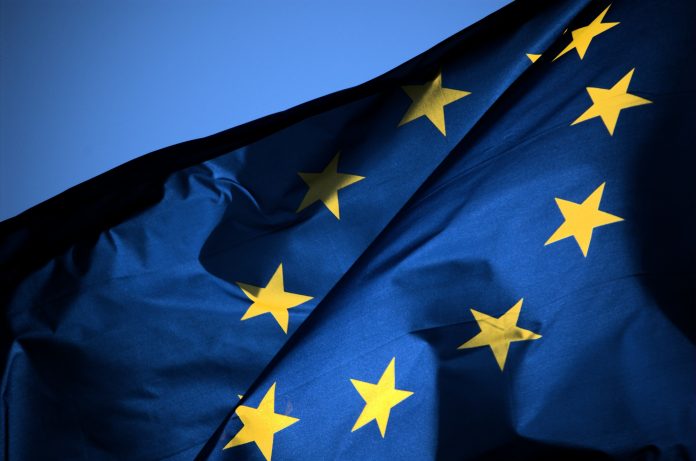Prime Minister May and President Juncker had dinner today, to discuss the potential of renegotiating the pre-existing Brexit deal: read on to see why EU says no Brexit renegotiations
Prime Minister May and President Juncker have met today to review the next steps in the UK’s withdrawal from the EU.
This follows a recent statement from Donald Tusk describing a “special place in hell” for Brexiteers; an expression both amusing and strikingly accurate. It was a moment of honest frustration which is echoed within the EU and the UK.
The talks were held today after politicians in the UK are unable to come to a cohesive decision. Theresa May attempted to negotiate legally binding guarantees on the Northern Ireland backstop, but the EU President Juncker refused to alter the pre-existing agreement.
The Prime Minister described the context in the UK Parliament and the motivation behind last week’s vote in the House of Commons seeking a legally binding change to the terms of the backstop. She raised various options for dealing with these concerns in the context of the Withdrawal Agreement in line with her commitments to the Parliament.
President Juncker underlined that the EU27 will not reopen the Withdrawal Agreement, which represents a carefully balanced compromise between the European Union and the UK, in which both sides have made significant concessions to arrive at a deal.
President Juncker, however, expressed his openness to add wording to the Political Declaration agreed by the EU27 and the UK in order to be more ambitious in terms of content and speed when it comes to the future relationship between the European Union and the UK.
President Juncker drew attention to the fact that any solution would have to be agreed by the European Parliament and the EU27.
The two leaders agreed that their teams should hold talks as to whether a way through can be found that would gain the broadest possible support in the UK Parliament and respect the guidelines agreed by the European Council. The Prime Minister and the President will meet again before the end of February to take stock of these discussions.
However, Whitehall chiefs have reportedly been asked to create contingency plans for a snap general election.
Labour party position on Brexit at present
Jeremy Corbyn, Leader of the Labour Party, has set out Labour’s five Brexit demands in a letter to Theresa May following their meeting last week.
The Labour leader says that while the Prime Minister is focused on negotiating changes to the backstop, she needs to enshrine five changes to the Political Declaration in law to secure Labour support for a deal that can bring the country together.
On the lack of consensus in Parliament on the 15th January, during which time the Prime Minister’s Brexit deal was voted down in a historic rejection of 230 votes against, Corbyn said:
“There is, as was demonstrated last week, a clear majority in Parliament that no deal must now be taken off the table and that there can be no return to a hard border in Northern Ireland in any circumstance.
The Government’s failure to secure a deal that can command the support of Parliament means time has run out for the necessary preparation and for legislation to be finalised. Following last week’s rejection by the House of Commons of ‘no deal’, all necessary steps must be taken to avoid such an outcome.”
His full letter to the Prime Minister can be found here.
Labour’s five demands for the Brexit deal:
1. A permanent and comprehensive UK-wide customs union
This would include alignment with the union customs code, a common external tariff and an agreement on a commercial policy that includes a UK say on future EU trade deals. We believe that a customs union is necessary to deliver the frictionless trade that our businesses, workers and consumers need, and is the only viable way to ensure there is no hard border on the island of Ireland.
2. Close alignment with the Single Market
This should be underpinned by shared institutions and obligations, with clear arrangements for dispute resolution.
3. Dynamic alignment on rights and protections
So that UK standards keep pace with evolving standards across Europe as a minimum, allowing the UK to lead the way.
4. Clear commitments on participation
In EU agencies and funding programmes, including in areas such as the environment, education, and industrial regulation.
5. Unambiguous agreements on the detail of future security arrangements
Including access to the European Arrest Warrant and vital shared databases.
Corbyn ends the letter by suggesting further discussions with May on these proposals “with the aim of securing a sensible agreement that can win the support of parliament and bring the country together.”
UK Brexit Secretary Stephen Barclay and EU negotiator Michel Barnier will continue talks in Strasbourg on Monday, 11th February.




![Europe’s housing crisis: A fundamental social right under pressure Run-down appartment building in southeast Europe set before a moody evening sky. High dynamic range photo. Please see my related collections... [url=search/lightbox/7431206][img]http://i161.photobucket.com/albums/t218/dave9296/Lightbox_Vetta.jpg[/img][/url]](https://www.openaccessgovernment.org/wp-content/uploads/2025/04/iStock-108309610-218x150.jpg)






